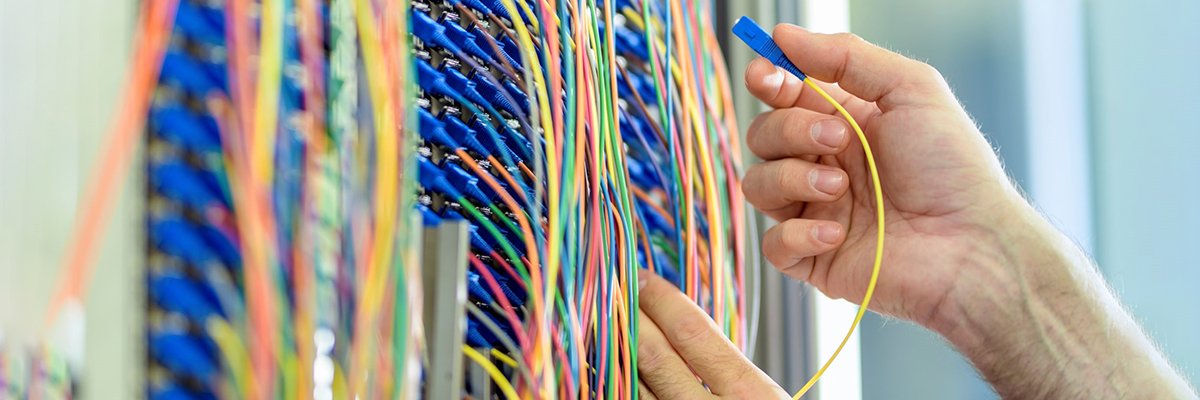One of the few unambiguous UK infrastructure successes over the past five years has been the development of broadband networks, especially in the gigabit sector, and the latest Ofcom survey of broadband and mobile markets has shown that not only is this pace being maintained, but also that full-fibre broadband service availability has reached majority status.
Based on findings from April and May 2023, the UK communications regulator’s Connected Nations summer update found the availability of gigabit-capable fixed broadband continues to improve at a rapid pace. The study calculated that nearly 22.4 million UK homes (75%) are now able to access these faster services, up from 21.9 million (73%) and an increase of 1.6 percentage points since the spring 2023 study.
Over half of UK homes (15.4 million, or 52%) now have access to full-fibre broadband, an increase of 15 percentage points in one year and four percentage points since spring 2023. Ofcom attributed this spike in growth predominantly to deployments by the larger fibre infrastructure operators, but supported by the buoyant altnet sector, which has seen a number of smaller providers serving individual communities and regions across the UK.
Outside of the premium connectivity sector, the report found the roll-out of superfast broadband with download speeds of at least 30Mbps has continued to grow – with coverage remaining at 97% of UK homes – although at a reduced pace. The regulator suggested the slowing pace may be due to the additional difficulty in reaching the final 3% of UK properties without such access.
The vast majority of UK properties had access to “decent” broadband, defined as offering at least 10Mbps download and 1Mbps upload speeds. With fears of a UK digital divide still very real, the number of residential and commercial properties that cannot receive a decent broadband service from a fixed line stands at around 428,000 (1.3%), having decreased from 433,000 since the spring 2023 report.
Ofcom also noted that fixed wireless access (FWA) networks – provided via mobile networks or through wireless internet service providers (WISPs) – can deliver a decent broadband service. The percentage of premises able to receive a decent broadband service from a WISP has increased slightly to 8%, while FWA coverage from mobile networks remains at 95% of premises.
Factoring in the coverage estimates provided by FWA providers, Ofcom estimates that at present there remain around 62,000 premises that do not have access to a decent broadband service from a fixed network or an FWA network, down 6,000 since spring 2023.
Looking at the mobile sector, the study found that coverage remained stable, with network upgrades on the way. While there hasn’t been a significant increase in coverage since the previous Connected Nations report, the summer update said the mobile industry continues to develop coverage. Around 93% of the UK is predicted to have good outdoor 4G coverage from at least one operator, and Ofcom expected this to rise to 95% by the end of 2025 as a result of the Shared Rural Network.
That said, Ofcom also noted that the UK has both geographic and road 4G notspots – areas where good 4G services are not available from any mobile operator. Geographic notspots have dropped slightly since Ofcom’s last report, from 8% to 7%. Road coverage remains largely the same, with just 4% of all roads estimated to be an in-vehicle notspot. This varied significantly across individual nations, however, particularly in Scotland and Wales.
The range of predicted coverage by mobile operators for calls and texts varied from 85% to 93% of the UK, depending on operator, while 99% of UK premises were predicted to have coverage for outdoor voice calls from all mobile operators.
In response to the Ofcom report, Ernest Doku, telecoms expert at connectivity price comparison service Uswitch.com, said: “While it’s good to see continued progress for the roll-out of full-fibre broadband, it’s important that all areas of the country – and all levels of society – see access improve, as getting online remains an essential part of our daily lives.
“It’s important that all broadband providers continue to invest in the reliability of their services. Two-fifths of consumers have experienced a broadband outage of three or more hours in the last year. Many of us rely on our home internet for work or to carry out daily tasks, so it’s vital that providers ensure they’re tackling the problem.”
